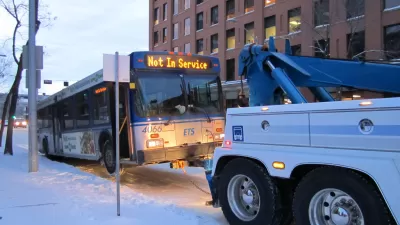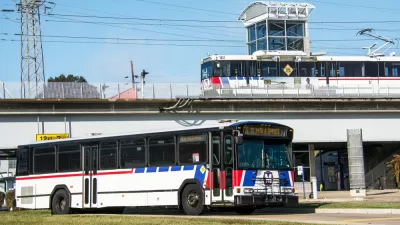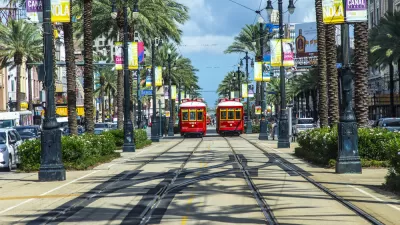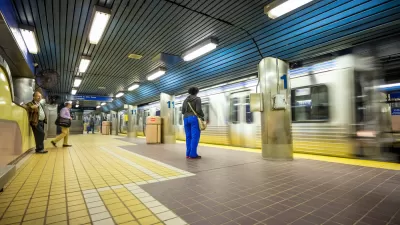Chris Hedges warns that corporate consolidation of public transportation is leading to increasingly dangerous conditions for both drivers and passengers, especially in intercity bus systems.

Deregulation, defunding, corporate consolidation and the decline of unionized labour is "destroying" public transportation in the United States, argues progressive journalist Chris Hedges. Working conditions are punishing for intercity drivers, many of whom must work for 100 hours a week, resulting in a dramatic increase in road fatalities. Hedges writes:
"The wreckage of the nation’s public transportation system is staggering...Our bus and rail system, compared to Europe's or Japan's is a joke. But an even more insidious process has begun. Multinational corporations, many of them foreign, are slowly consolidating transportation systems into a few private hands...The $8.5 billion stimulus package for public transportation...did not provide any money to fund operating costs for public transportation. This meant that city public bus services, which must operate on declining local tax revenue, could do little more with the stimulus money than work on infrastructure. Public transportation is increasingly part of the underground economy. Working conditions are punishing and often unsafe...Fly-by-night bus companies, union officials say, are little more than 'sweatshops on wheels.'
The only hope is the creation of rider groups in towns and cities to save public transportation."

Maui's Vacation Rental Debate Turns Ugly
Verbal attacks, misinformation campaigns and fistfights plague a high-stakes debate to convert thousands of vacation rentals into long-term housing.

Planetizen Federal Action Tracker
A weekly monitor of how Trump’s orders and actions are impacting planners and planning in America.

In Urban Planning, AI Prompting Could be the New Design Thinking
Creativity has long been key to great urban design. What if we see AI as our new creative partner?

King County Supportive Housing Program Offers Hope for Unhoused Residents
The county is taking a ‘Housing First’ approach that prioritizes getting people into housing, then offering wraparound supportive services.

Researchers Use AI to Get Clearer Picture of US Housing
Analysts are using artificial intelligence to supercharge their research by allowing them to comb through data faster. Though these AI tools can be error prone, they save time and housing researchers are optimistic about the future.

Making Shared Micromobility More Inclusive
Cities and shared mobility system operators can do more to include people with disabilities in planning and operations, per a new report.
Urban Design for Planners 1: Software Tools
This six-course series explores essential urban design concepts using open source software and equips planners with the tools they need to participate fully in the urban design process.
Planning for Universal Design
Learn the tools for implementing Universal Design in planning regulations.
planning NEXT
Appalachian Highlands Housing Partners
Mpact (founded as Rail~Volution)
City of Camden Redevelopment Agency
City of Astoria
City of Portland
City of Laramie





























